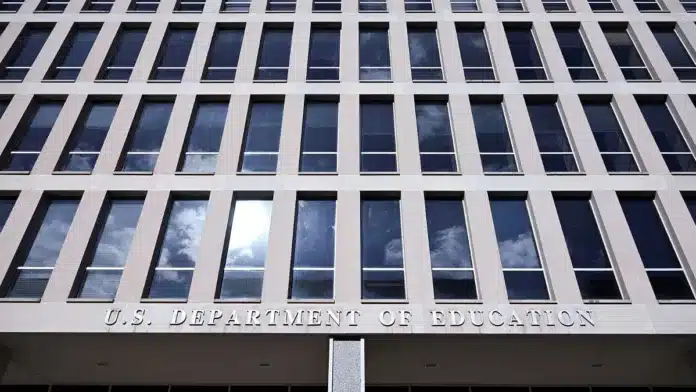
Trump Moves to Dismantle Department of Education with Executive Order
President Trump is expected to sign an executive order directing the closure of the Department of Education, aiming to shift control of education from federal to state level. This marks a significant attempt to reshape American education governance.

Department of Education headquarters building
The move follows previous actions where the administration reduced the department's workforce by 50%. While the executive order demonstrates intent, Congressional approval remains necessary for actual dissolution.
Key Motivations:
- Conservative opposition to federal education oversight
- Push for state control over curriculum and funding
- Administration's goal to reduce government bureaucracy
Potential Impact:
- Disruption of federal education funding programs
- Changes to Pell Grants and federal student loan systems
- Uncertainty for civil rights enforcement in education
- Effects on special education and low-income school funding
Legal Considerations:
- Congressional approval required for department closure
- Process could extend months or years
- Senate resistance expected, including from some Republicans
Current political reactions are divided:
- Critics warn of harmful effects on student populations
- Supporters view it as necessary education reform
- Democratic leadership opposes the measure
- Republican allies celebrate reduced federal involvement
The executive order initiates a complex legislative process that will determine the future of federal involvement in American education. The outcome could fundamentally alter how education is administered and funded across the United States.
This development sets the stage for a significant congressional debate about federal involvement in education, with implications for millions of students, educators, and educational institutions nationwide.
Later discussions in Congress will determine whether this executive order leads to actual departmental closure or becomes another chapter in ongoing education policy debates.